
Rarotonga: The Jewel of the Cook Islands
Rarotonga is the largest of the Cook Islands and is often referred to as 'The Jewel' due to its stunning beauty. Surrounded by a vibrant coral reef, this island offers crystal-clear waters perfect for snorkeling and diving. The lush, green interior is a haven for hikers and nature lovers, with trails leading through tropical rainforests and up to the volcanic peaks. The island's main town, Avarua, is a charming place where you can explore local markets, shop for unique crafts, and enjoy delicious Polynesian cuisine. The laid-back vibe of Rarotonga makes it an ideal destination for relaxation, but there are also plenty of activities to keep you entertained, from cultural shows to water sports. Don't miss the opportunity to take a lagoon cruise or visit the nearby islet of Motu Tapu. Whether you're looking to unwind on a pristine beach, explore underwater worlds, or immerse yourself in local culture, Rarotonga has something for everyone.
Local tips in Rarotonga
- Visit the Punanga Nui Market on Saturdays for the best local produce and crafts.
- Rent a scooter or bike to explore the island at your own pace.
- Bring reef-safe sunscreen to protect the delicate marine life.
- Take a guided hike to the Te Rua Manga (The Needle) for breathtaking views.
- Try the local dish 'ika mata', a marinated raw fish salad.
- Attend an 'Island Night' show to experience traditional dance and music.
- Book accommodation in advance during peak season (June to August).
Rarotonga: The Jewel of the Cook Islands
Rarotonga is the largest of the Cook Islands and is often referred to as 'The Jewel' due to its stunning beauty. Surrounded by a vibrant coral reef, this island offers crystal-clear waters perfect for snorkeling and diving. The lush, green interior is a haven for hikers and nature lovers, with trails leading through tropical rainforests and up to the volcanic peaks. The island's main town, Avarua, is a charming place where you can explore local markets, shop for unique crafts, and enjoy delicious Polynesian cuisine. The laid-back vibe of Rarotonga makes it an ideal destination for relaxation, but there are also plenty of activities to keep you entertained, from cultural shows to water sports. Don't miss the opportunity to take a lagoon cruise or visit the nearby islet of Motu Tapu. Whether you're looking to unwind on a pristine beach, explore underwater worlds, or immerse yourself in local culture, Rarotonga has something for everyone.
When is the best time to go to Rarotonga?
Iconic landmarks you can’t miss
Te Ara Cook Islands Museum of Cultural Enterprise
Explore Cook Islands history and culture at Te Ara Museum in Muri, Rarotonga. Discover traditions, art, and local craftsmanship.
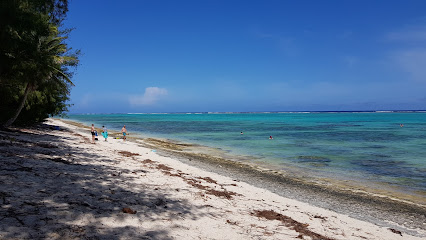
Next Tattoo Cook Islands
Experience Polynesian artistry at Next Tattoo Cook Islands: Custom tattoos that capture the spirit and stories of Rarotonga.
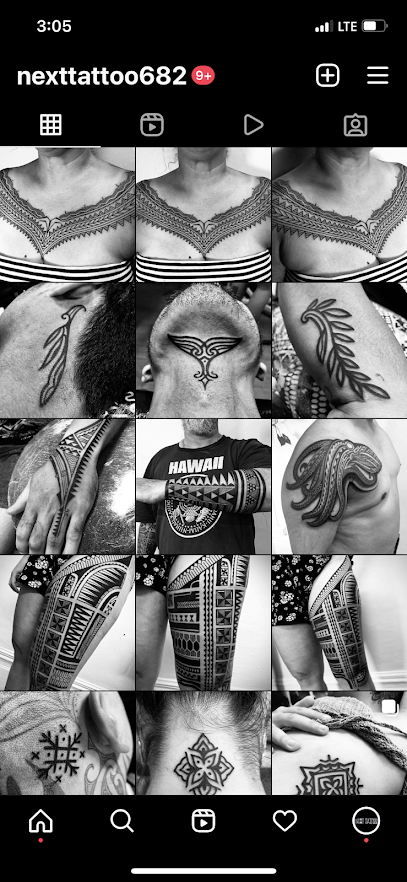
Maori Stonehenge
Discover the celestial wisdom of the ancient Maori at Rarotonga's intriguing Stonehenge, a window into Polynesian astronomical heritage.
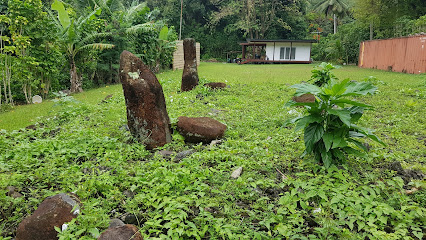
Pa Monument
Discover the historical significance of Pa Monument in Avarua, Rarotonga, a window into the Cook Islands' ancient culture and traditions.
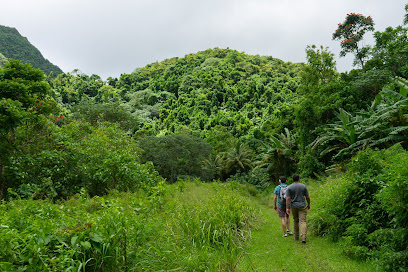
Unmissable attractions to see
Punanga Nui Market
Experience Rarotonga's vibrant culture at Punanga Nui Market: local crafts, delicious food, and island vibes await every Saturday morning.
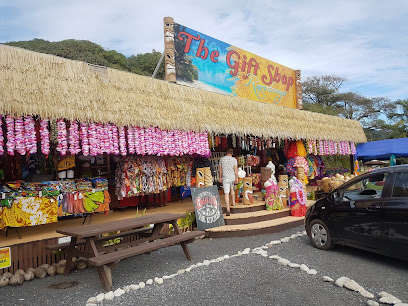
Muri Night Markets
Discover the vibrant Muri Night Markets, where local culture and diverse cuisine come together for an unforgettable culinary experience.
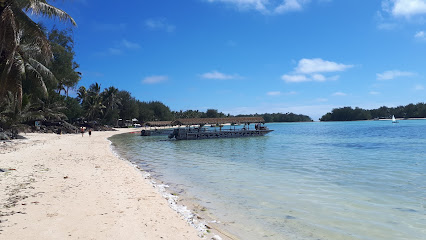
Snorkel Cook Islands
Experience the vibrant underwater world of the Cook Islands with Snorkel Cook Islands, your gateway to unforgettable snorkeling and diving adventures.

Te Rua Manga (The Needle)
Discover the breathtaking views and adventure at Te Rua Manga (The Needle) in Avarua, Cook Islands, a must-visit natural landmark for all travelers.
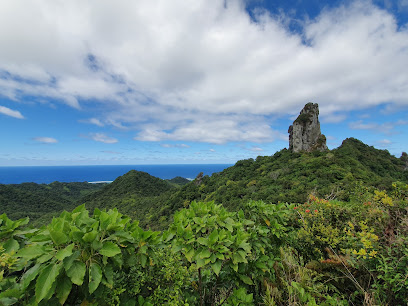
Ocean Toa Cook Islands
Experience the breathtaking beauty and vibrant culture of the Cook Islands with Ocean Toa, your premier tour agency in Rarotonga.
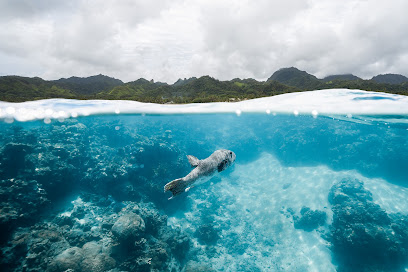
Wigmore's Waterfall
Experience the breathtaking beauty and tranquility of Wigmore's Waterfall, a must-visit natural gem in the heart of Takitumu District.
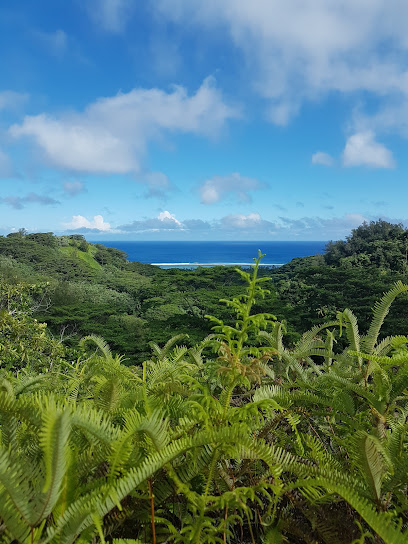
Highland Paradise
Immerse yourself in the rich culture and breathtaking scenery of Highland Paradise, a cultural center and restaurant in the heart of the Cook Islands.
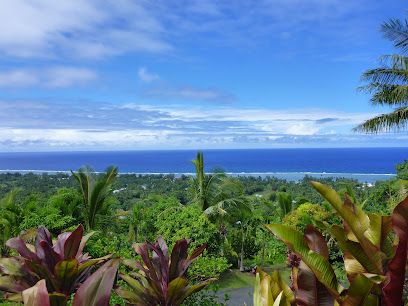
Discover Marine Wildlife and Eco Centre
Explore Rarotonga's marine biodiversity at this engaging eco-center, featuring interactive exhibits and live marine creatures. A must-see for nature lovers!
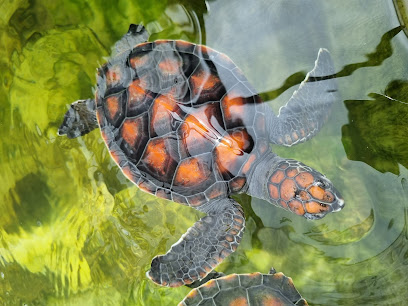
Manea on Muri
Experience the beauty of Rarotonga at Manea on Muri, a beachfront paradise offering self-catering accommodations in a stunning tropical setting.

Cook Islands National Museum
Discover the Cook Islands' vibrant history and culture at the National Museum in Avarua. Explore traditional artifacts and learn about the island's heritage.
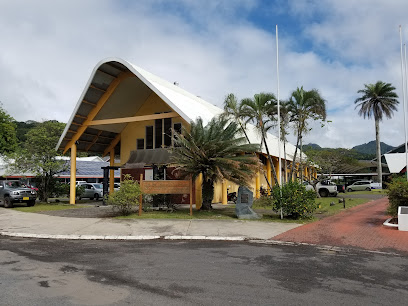
Game Fishing Rarotonga
Experience the thrill of deep-sea fishing in Rarotonga's pristine waters with experienced local captains. Your adventure awaits!
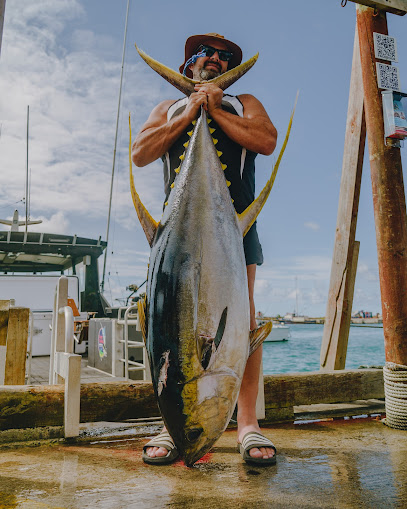
Nikao Beach
Discover the tranquil beauty of Nikao Beach in Avarua, where soft sands and azure waters create a perfect tropical getaway.
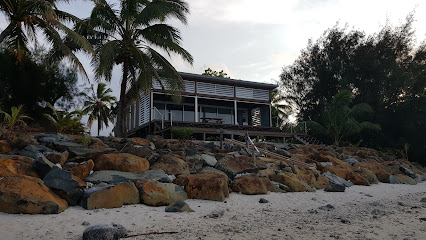
Takitumu Conservation Area
Discover the enchanting Takitumu Conservation Area, a paradise of lush landscapes and diverse wildlife in the heart of the Cook Islands.
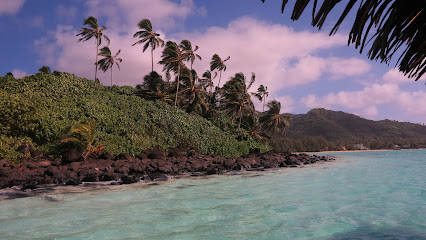
Avaavaroa Passage
Discover Rarotonga's underwater gem: swim with turtles and explore vibrant coral reefs in the stunning Avaavaroa Passage.
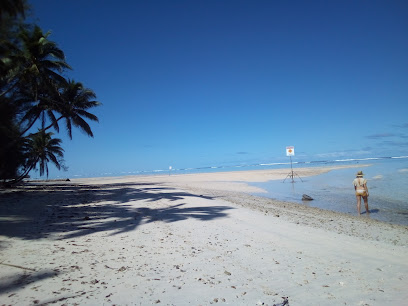
Umu Experience
Immerse yourself in Cook Islands culture with traditional umu cooking, captivating performances, and a delicious island feast at the Umu Experience in Avarua.
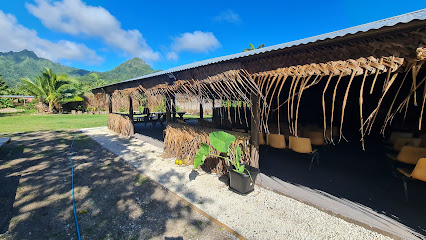
Essential places to dine
Trader Jacks
Experience vibrant dining at Trader Jacks in Avarua - where stunning ocean views meet delicious grill specialties and lively nightlife.
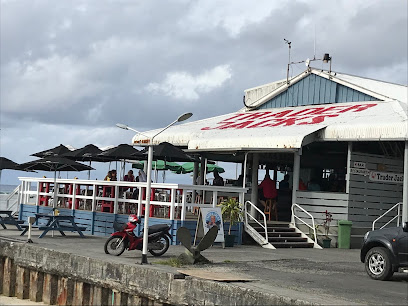
Tamarind House Restaurant & Ukulele Bar
Experience exquisite dining with stunning views at Tamarind House Restaurant & Ukulele Bar in Avarua - a culinary paradise in the Cook Islands.
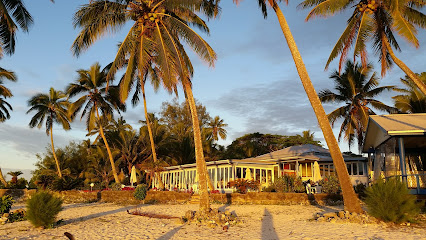
Vaima Restaurant and Bar
Discover the vibrant flavors and relaxing atmosphere at Vaima Restaurant and Bar in Takitumu District - where every meal is a celebration.
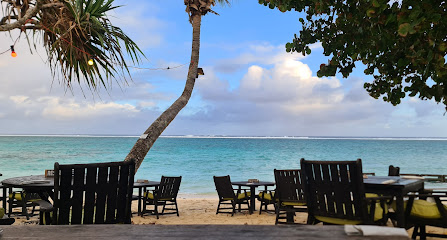
The Waterline Restaurant and Outrigger Beach Bar
Discover breathtaking ocean views and indulge in delicious local cuisine at The Waterline Restaurant and Outrigger Beach Bar in Rarotonga.
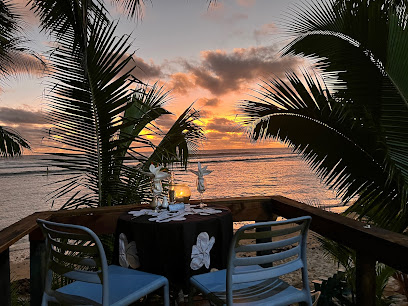
Antipodes rarotonga
Experience authentic Cook Islands cuisine at Antipodes Rarotonga - where every dish tells a story.
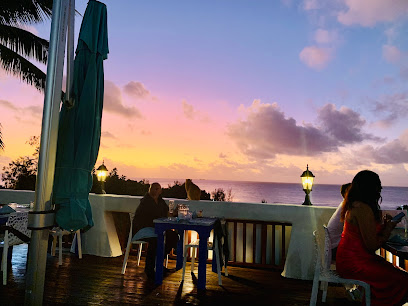
Spaghetti House Restaurant
Experience authentic Italian cuisine amidst tropical beauty at Spaghetti House Restaurant in Rarotonga.
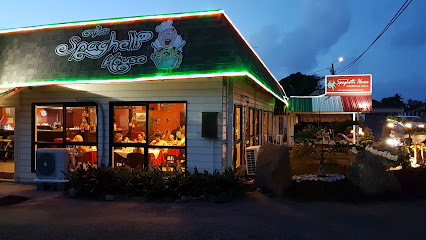
Kikau Hut
Discover Kikau Hut: A culinary oasis in Rarotonga serving authentic Polynesian cuisine amidst breathtaking island views.
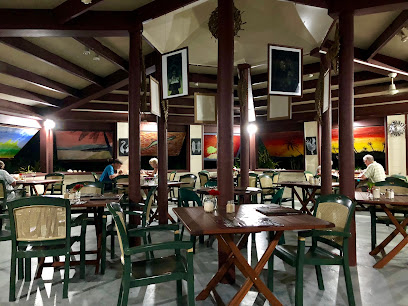
On the Beach Bar and Restaurant
Discover culinary delights with ocean views at On the Beach Bar and Restaurant in Arorangi District – where every meal is a tropical escape.
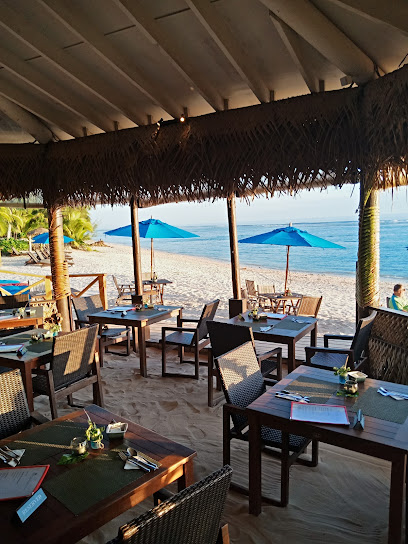
The Lucky Rooster Eatery
Discover The Lucky Rooster Eatery in Avarua – where culinary delights meet artistic flair in a cozy cafe setting.
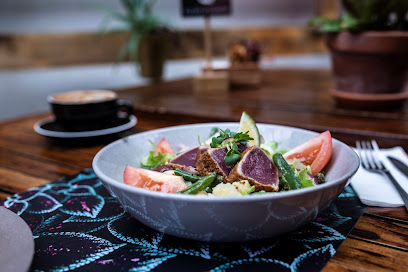
Cafe Ariki
Discover Cafe Ariki in Avarua – where local flavors meet international cuisine in a vibrant island setting.
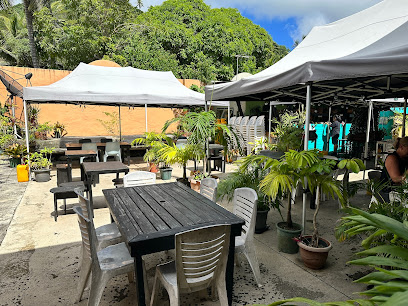
La Casita Rarotonga Mexican Cafe
Experience authentic Mexican flavors at La Casita Rarotonga Mexican Cafe in Ngatangiia District - where every bite tells a story.
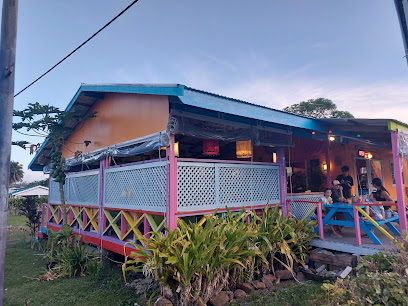
The Rickshaw Rarotonga
Experience vibrant culinary flavors at The Rickshaw Rarotonga - where local ingredients meet island charm in an unforgettable dining experience.
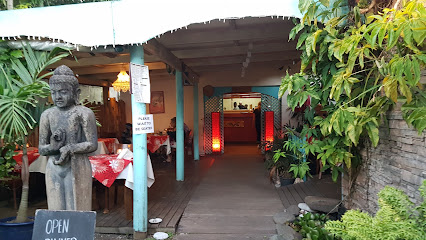
The Lazy Trout Cafe
Discover flavorful dishes at The Lazy Trout Cafe in Avarua – where local ingredients meet cozy ambiance.
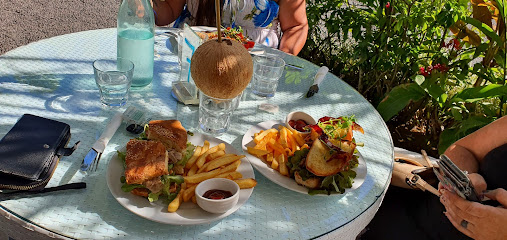
Yellow Hibiscus Resturant
Discover culinary excellence at Yellow Hibiscus Restaurant in Takitumu District - where local flavors meet breathtaking views.
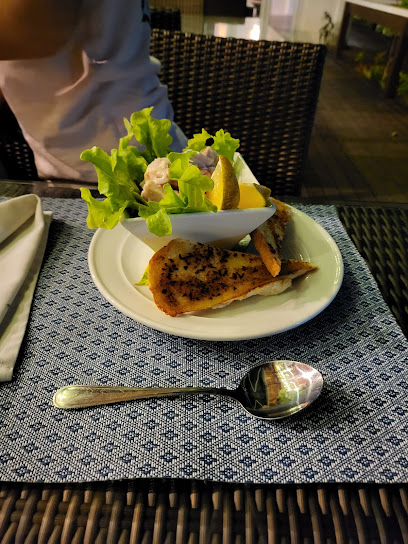
Tumunu Bar and Restaurant
Experience local flavors and tropical vibes at Tumunu Bar and Restaurant in Arorangi District - your ultimate destination for relaxation.
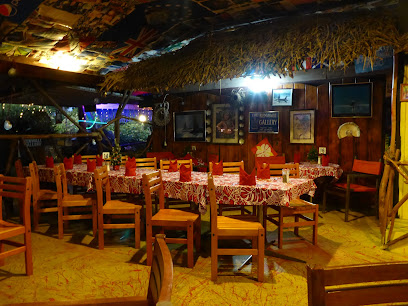
Markets, malls and hidden boutiques
Punanga Nui Market
Discover the vibrant heart of Rarotonga at Punanga Nui Market, a lively produce market filled with local flavors and cultural experiences.
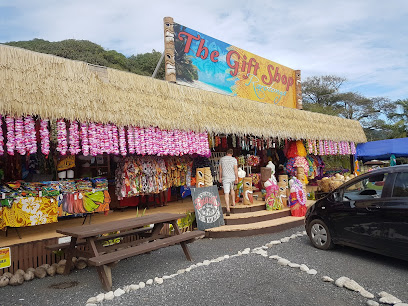
Wigmore's Superstore
Explore a diverse selection of local and international products at Wigmore's Superstore in Takitumu District, your go-to shopping destination.
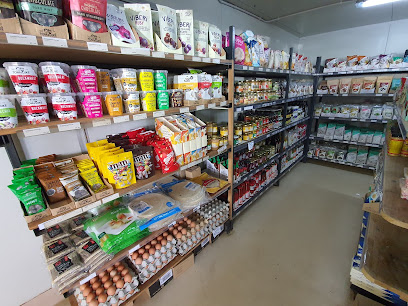
Avarua Shopping Centre
Experience the vibrant culture and local flavors at Avarua Shopping Centre, the ultimate shopping destination in the Cook Islands.
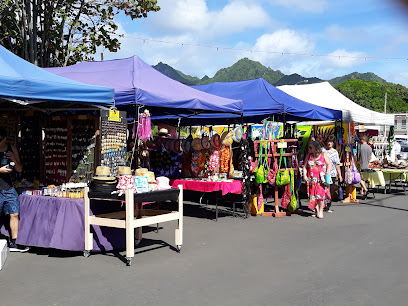
Island Craft Ltd
Explore the vibrant world of handcrafted gifts and souvenirs at Island Craft Ltd in Avarua, where each item tells a story of island life.
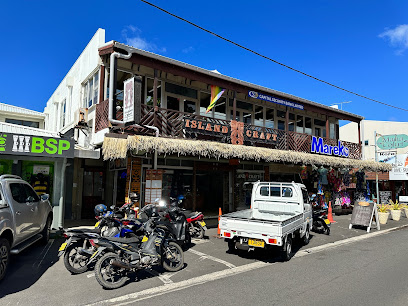
The T-Shirt Factory
Discover authentic Cook Islands souvenirs at The T-Shirt Factory, where local artistry meets vibrant design in Avarua.
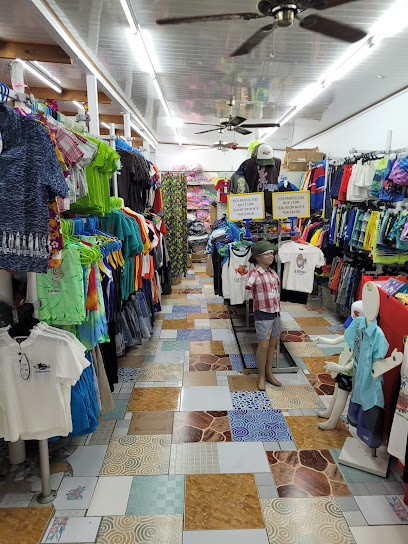
Cooks Fudge Factory/ Perfumes of Rarotonga
Explore Cooks Fudge Factory, where delicious chocolates, unique gifts, and artisanal perfumes bring the essence of Rarotonga to life.
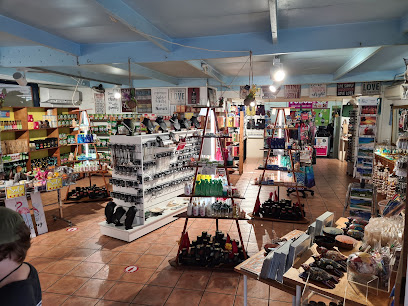
Perfumes of Rarotonga Factory
Explore the enchanting fragrances of the Cook Islands at the Perfumes of Rarotonga Factory, a unique gift shop offering handcrafted scents and souvenirs.
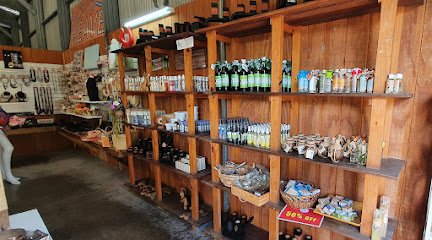
Vonnias Warehouse
Explore the vibrant Vonnias Warehouse in Avarua for local crafts, souvenirs, and essential goods, capturing the essence of the Cook Islands.
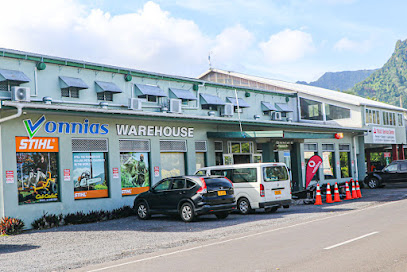
Tuki's Pareu
Explore Tuki's Pareu in Avarua for unique island-inspired clothing and accessories, reflecting the vibrant culture of the Cook Islands.
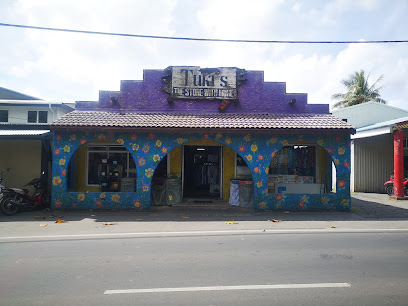
Creative Centre
Discover the Creative Centre in Avarua for unique handcrafted art and cultural treasures from the Cook Islands, supporting local artisans.
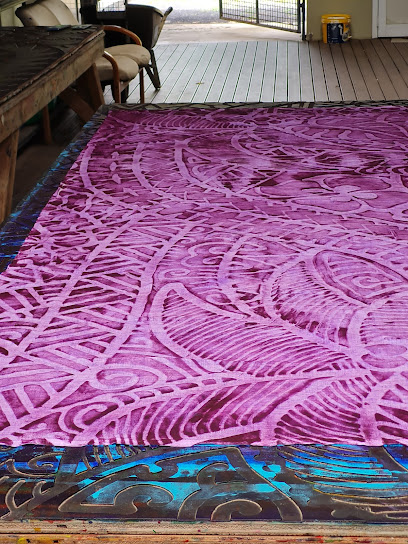
Tivaevae Collectables Cultural Gift Shop
Explore Tivaevae Collectables in Avarua for unique gifts that celebrate the rich cultural heritage of the Cook Islands.
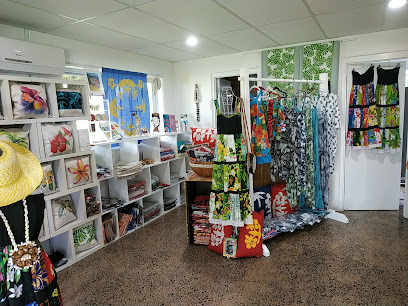
Raro Mart
Experience the vibrant shopping scene at Raro Mart in Avarua, where local culture meets unique finds in a charming setting.
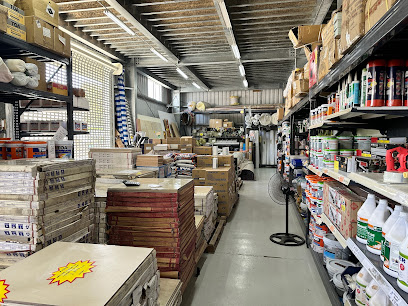
Mareko Island Creations
Explore Mareko Island Creations for unique handcrafted gifts and souvenirs that capture the spirit of the Cook Islands.
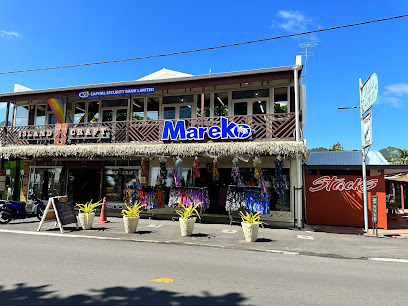
Paka's Pearls
Explore Avarua's finest jewelry store, Paka's Pearls, where exquisite craftsmanship meets the beauty of the Cook Islands' pearls.
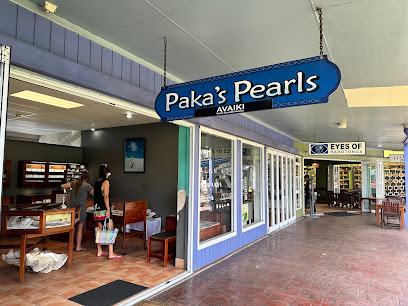
The Little Red Gallery
Explore the vibrant artistry of the Cook Islands at The Little Red Gallery, your go-to store for unique local crafts and souvenirs in Avarua.
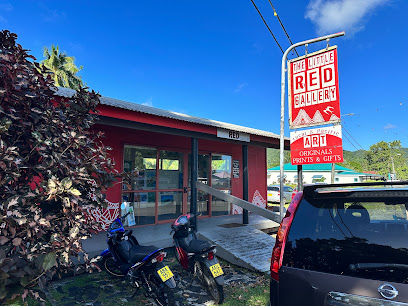
Essential bars & hidden hideouts
Trader Jacks
Discover the lively atmosphere and delicious grilled cuisine at Trader Jacks, a top restaurant and bar in Avarua, Cook Islands.
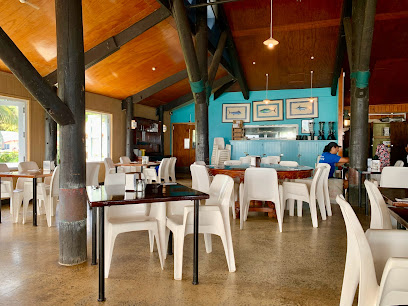
Charlie's Raro
Experience the vibrant blend of local flavors and nightlife at Charlie's Raro, a top bar and restaurant in the heart of Takitumu District, Rarotonga.
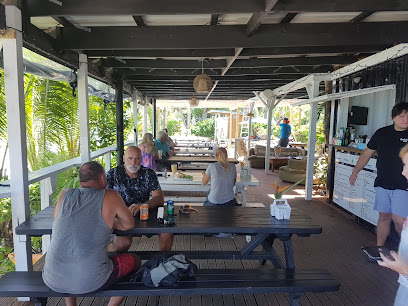
Tamarind House Restaurant & Ukulele Bar
Discover the culinary delights of Tamarind House Restaurant & Ukulele Bar in Avarua, where local flavors meet vibrant entertainment in a tropical paradise.
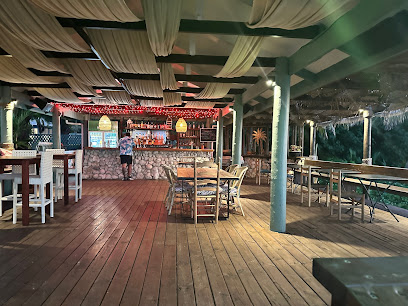
Vaima Restaurant and Bar
Discover the culinary delights of Vaima Restaurant and Bar in Takitumu, where local flavors meet stunning tropical views for an unforgettable dining experience.
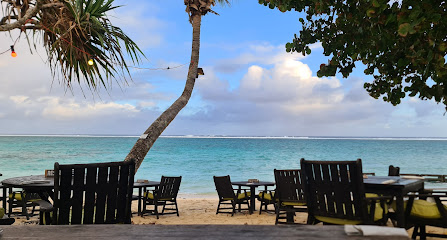
21.3 Vaiana's Bar & Bistro
Discover the perfect blend of relaxation and local flavor at Vaiana's Bar & Bistro in Avarua, a beachside gem for food and drink enthusiasts.
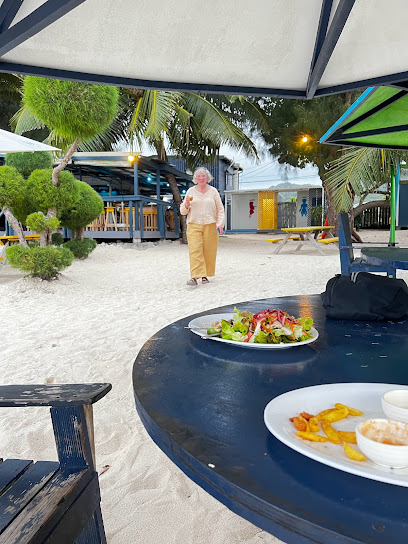
The Waterline Restaurant and Outrigger Beach Bar
Experience the perfect blend of stunning ocean views and delectable cuisine at The Waterline Restaurant and Outrigger Beach Bar in Rarotonga.
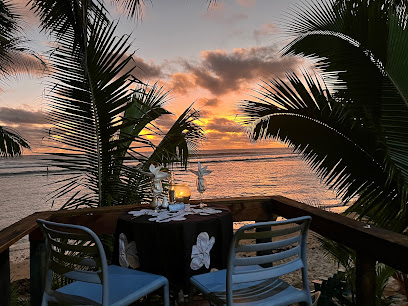
Shipwreck Hut Bar & Restaurant & Accomodation
Discover the charm of Shipwreck Hut Bar & Restaurant, where delicious grilled delights meet vibrant live music in the beautiful Arorangi District.
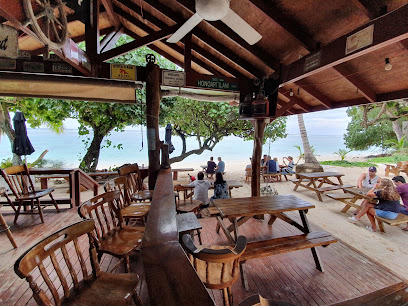
On the Beach Bar and Restaurant
Discover culinary delights with breathtaking ocean views at On the Beach Bar and Restaurant in Arorangi District, Cook Islands.
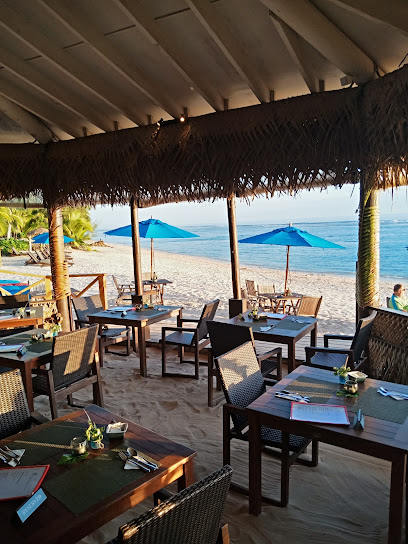
Wilsons Bar & Restaurant
Discover the vibrant atmosphere and delightful cuisine at Wilsons Bar & Restaurant in Arorangi, a must-visit for every traveler.
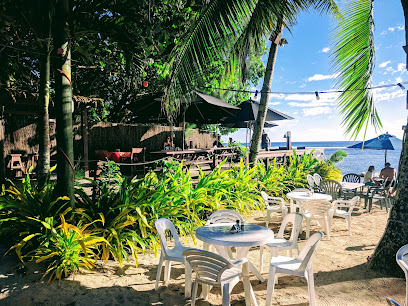
Rehab
Discover the vibrant nightlife at Rehab in Avarua, where dance, drinks, and unforgettable memories await every visitor.
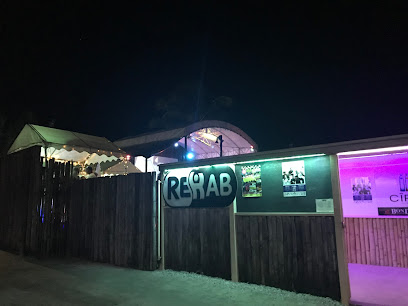
Tumunu Bar and Restaurant
Experience the vibrant flavors of Rarotonga at Tumunu Bar and Restaurant, where local cuisine meets island charm in a stunning tropical setting.
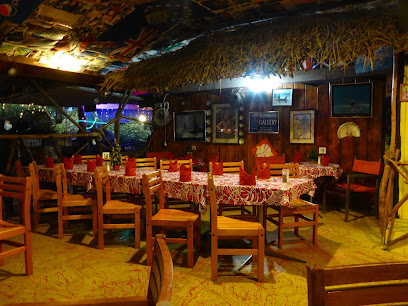
Mai’i Cafe & Bar
Experience the vibrant atmosphere and local flavors at Mai’i Cafe & Bar in Takitumu District, a must-visit for any traveler seeking adventure.
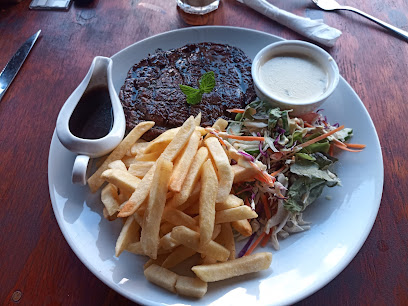
Hula Bar
Experience the vibrant nightlife of Rarotonga at Hula Bar, where refreshing cocktails and lively music create an unforgettable tropical escape.
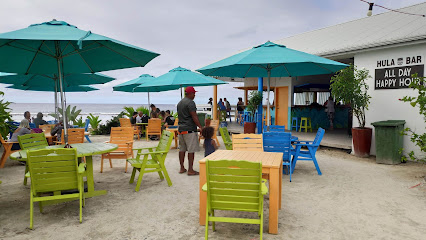
Roadhouse Bar & Restaurant
Discover the vibrant atmosphere at Roadhouse Bar & Restaurant, where delicious local cuisine meets lively entertainment in Arorangi District.
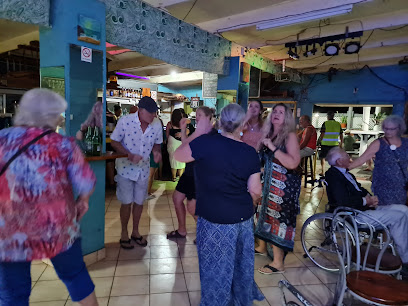
Margaritas Bistro & Bar
Experience the vibrant flavors and cozy atmosphere of Margaritas Bistro & Bar in Avarua, where culinary delights meet local charm.
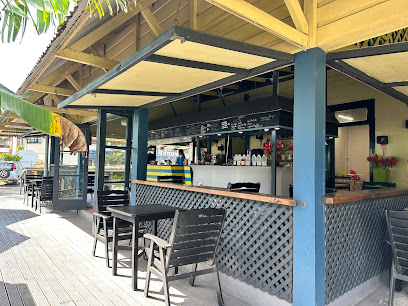
Local Phrases about Rarotonga
-
- HelloKia ora
[Kee-ah or-ah] - GoodbyeAere ra
[Eye-reh rah] - YesE
[Eh] - NoKare
[Kah-reh] - Please/You're welcomeAere mai
[Eye-reh my] - Thank youMeitaki
[May-tah-kee] - Excuse me/SorryAue
[Ooh-eh] - How are you?Pehea koe?
[Peh-heh-ah koh-eh] - Fine. And you?Maika. Koe?
[My-kah. Koh-eh] - Do you speak English?E koe e kai orero angara?
[Eh koh-eh eh kai or-air-roh ah-ngah-rah] - I don't understandKare au e aroa
[Kah-reh ow eh ah-roh-ah]
- HelloKia ora
-
- I'd like to see the menu, pleaseKia orana, ka meitaki kia kite mene
[Kee-ah or-ah-nah, kah may-tah-kee kee-ah kee-tay meh-neh] - I don't eat meatKare au e kai kai
[Kah-reh ow eh kai kai] - Cheers!Manuia!
[Mah-noo-ee-ah] - I would like to pay, pleaseKa meitaki kia utu
[Kah may-tah-kee kee-ah oo-too]
- I'd like to see the menu, pleaseKia orana, ka meitaki kia kite mene
-
- Help!Ara!
[Ah-rah] - Go away!E pupu!
[Eh poo-poo] - Call the Police!Tatau ki te kuki!
[Tah-tow kee teh koo-kee] - Call a doctor!Tatau ki te dokita!
[Tah-tow kee teh doh-kee-tah] - I'm lostKua ngaro au
[Koo-ah ngah-roh ow] - I'm illKare au e ika
[Kah-reh ow eh ee-kah]
- Help!Ara!
-
- I'd like to buy...Ka meitaki kia oti
[Kah may-tah-kee kee-ah oh-tee] - I'm just lookingTei au e aro mai
[Tay ow eh ah-roh my] - How much is it?E hia tenei?
[Eh hee-ah teh-neh-ee] - That's too expensiveKua rahi te moni
[Koo-ah rah-hee teh moh-nee] - Can you lower the price?Ka taea e koe te iti i te moni?
[Kah tah-eh-ah eh koh-eh teh ee-tee ee teh moh-nee]
- I'd like to buy...Ka meitaki kia oti
-
- What time is it?Ko te aha te taimi?
[Koh teh ah-hah teh tah-ee-mee] - It's one o'clockKo te tahi te ora
[Koh teh tah-hee teh oh-rah] - Half past (10)E toru
[Eh toh-roo] - MorningAkarongo
[Ah-kah-roh-ngoh] - AfternoonApopo
[Ah-poh-poh] - EveningPō
[Poh] - YesterdayAroa
[Ah-roh-ah] - TodayAnei
[Ah-nay] - TomorrowĀpōpō
[Ah-poh-poh] - 1Tahi
[Tah-hee] - 2Rua
[Roo-ah] - 3Toru
[Toh-roo] - 4Ā
[Ah] - 5Rima
[Ree-mah] - 6Ono
[Oh-no] - 7Fitu
[Fee-too] - 8Varu
[Vah-roo] - 9Iva
[Ee-vah] - 10Ngahuru
[Nga-hoo-roo]
- What time is it?Ko te aha te taimi?
-
- Where's a/the...?Kei te aha te...
[Kay teh ah-hah teh] - What's the address?Ko te aha te 'apinga?
[Koh teh ah-hah teh ah-peen-gah] - Can you show me (on the map)?Ka taea e koe te 'akakite i a'u?
[Kah tah-eh-ah eh koh-eh teh ah-kah-kee-teh ee ah-oo] - When's the next (bus)?Āhea te pa'anga o muri atu?
[Ah-heh-ah teh pah-ah-ngah oh moo-ree ah-too] - A ticket (to ....)He ta'ita'i (ki ....)
[Heh tah-ee-tah-ee (kee)]
- Where's a/the...?Kei te aha te...
History of Rarotonga
-
Rarotonga, the largest of the Cook Islands, has a rich history that dates back over a thousand years. The island was originally settled by Polynesians who voyaged across vast expanses of ocean in large double-hulled canoes. These early settlers brought with them their sophisticated navigation techniques, agricultural practices, and social structures. The island's lush landscape provided ample resources for these early communities to thrive.
-
European contact with Rarotonga began in the early 19th century. The first known European to sight the island was Captain Philip Goodenough in 1814, though he did not land. It wasn't until 1823 that the first recorded European landing occurred, when Reverend John Williams of the London Missionary Society arrived. This period marked the beginning of significant cultural changes as missionaries sought to convert the local population to Christianity.
-
In the late 19th century, Rarotonga and the other Cook Islands became a British protectorate. This move was partly influenced by the geopolitical interests of the time, as Britain sought to prevent French expansion in the Pacific. The Cook Islands were later annexed by New Zealand in 1901. The colonial period brought administrative changes and introduced new legal and educational systems, which have had a lasting impact on the island's society.
-
During World War II, the Cook Islands, including Rarotonga, played a strategic role in the Pacific Theater. The island served as a refueling and rest station for Allied forces. Although the direct impact of the war on the local population was limited, the presence of military personnel and equipment introduced new technologies and ideas to the island.
-
The mid-20th century saw Rarotonga and the Cook Islands move towards greater autonomy. In 1965, the Cook Islands became a self-governing territory in free association with New Zealand. This political status allows the Cook Islands to manage their own affairs while New Zealand retains responsibility for defense and foreign policy. The move to self-governance has been a pivotal moment in the island's history, fostering a sense of national identity and pride.
-
In recent decades, there has been a significant cultural revival on Rarotonga. Efforts to preserve and promote traditional Polynesian culture, including dance, music, and crafts, have gained momentum. The island now hosts annual festivals such as Te Maeva Nui, celebrating Cook Islands' heritage and independence. Today, Rarotonga is a vibrant blend of ancient traditions and modern influences, attracting visitors from around the world who come to experience its unique cultural and historical tapestry.
Rarotonga Essentials
-
Rarotonga, the largest of the Cook Islands, is accessible primarily by air. The main gateway is Rarotonga International Airport (RAR), which receives flights from New Zealand, Australia, and other Pacific islands. Air New Zealand, Virgin Australia, and Jetstar are among the airlines that operate flights to Rarotonga. Additionally, there are domestic flights from other Cook Islands via Air Rarotonga. The airport is located just a few kilometers from the main town of Avarua, making transfers to your accommodation quick and easy.
-
Once on the island, transportation options include rental cars, scooters, bicycles, and buses. Rental cars and scooters are available at the airport and in Avarua. Bicycles are an eco-friendly way to explore the island at a leisurely pace. Rarotonga also has a reliable bus service that runs clockwise and counterclockwise around the island, making stops at major hotels and attractions. Taxis are available but can be more expensive, so it's advisable to agree on a fare before starting your journey.
-
The official currency of the Cook Islands is the New Zealand Dollar (NZD). Credit cards are widely accepted in hotels, restaurants, and larger shops, but smaller establishments and markets may only accept cash. ATMs are available in Avarua and at the airport, but it's a good idea to carry some cash for remote areas and smaller vendors. Currency exchange services are available at banks and some hotels.
-
Rarotonga is generally a safe destination for tourists. However, it is always wise to take standard precautions. Avoid leaving valuables unattended on the beach or in plain sight in your vehicle. While there are no specific high-crime areas targeting tourists, it's best to stay vigilant, especially at night. Petty theft can occur, so keep an eye on your belongings and use hotel safes where available.
-
In case of an emergency, dial 999 for police, ambulance, or fire services. The main hospital, Rarotonga Hospital, is located in Avarua and provides emergency medical services. Pharmacies are also available for minor health issues. It is highly recommended to have travel insurance that covers medical emergencies and evacuations. For consular assistance, contact your country's embassy or consulate in New Zealand, as there are no foreign embassies in the Cook Islands.
-
Fashion: Do wear casual and comfortable clothing, but avoid overly revealing attire, especially in villages and religious sites. Religion: Do respect local customs and traditions. Remove your shoes before entering homes and churches. Public Transport: Do be polite and greet the bus driver when boarding. Don't eat or drink on public buses. Greetings: Do greet people with a warm 'Kia Orana,' which means 'hello' or 'welcome.' Eating & Drinking: Do try local dishes such as ika mata (raw fish salad) and curried octopus. Don't refuse food offered by locals, as it may be considered impolite.
-
To experience Rarotonga like a local, visit the Punanga Nui Market on Saturday mornings for fresh produce, crafts, and local foods. Engage with the locals, who are known for their friendliness and hospitality. Don't miss the opportunity to attend a traditional island night, featuring dance performances and local cuisine. For a unique experience, explore the island's interior on a cross-island trek, or snorkel in the crystal-clear waters of the Muri Lagoon.
Nearby Cities to Rarotonga
-
Things To Do in Avarua
-
Things To Do in Matavera
-
Things To Do in Takitumu
-
Things To Do in Nikao
-
Things To Do in Arorangi
-
Things To Do in Ngatangiia
-
Things To Do in Muri
-
Things To Do in Maupiti
-
Things To Do in Bora Bora
-
Things To Do in Raiatea
-
Things To Do in Huahine
-
Things To Do in Moorea
-
Things To Do in Papeete
-
Things To Do in Tahiti
-
Things To Do in Tetiaroa










